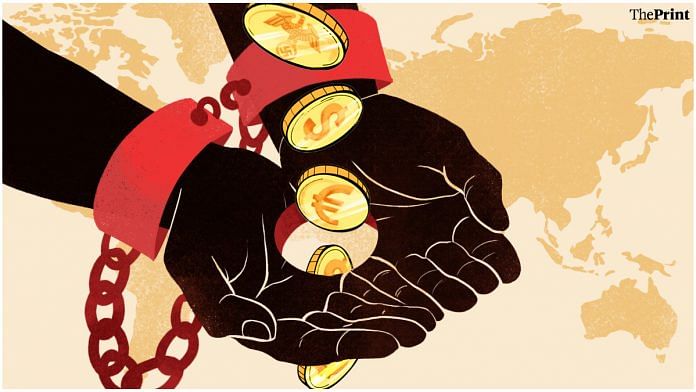A year ago, Germany agreed to pay Namibia for what the European country agreed was colonial genocide. The amount involved was pitifully small (€ 1.1 billion, spread over 30 years, to be spent on developmental projects), and the word “reparations” was avoided. The result of this compromise was strong opposition within Namibia, and a stalled agreement.
Separately, the American city of Evanston in Illinois state began last year to pay an eventual total of $10 million in slavery reparations to a select few of its 12,000-strong African-American population, money that would help with housing as compensation for discriminatory housing policies of the past. Critics say this too is much too little. Meanwhile, Joe Biden during his election campaign had supported creating a commission on reparations to African-Americans. Pressure groups are now asking him to deliver, but legislation on the subject is unlikely to pass.
Germany’s history in Namibia was brutal, but not unique. Local tribesmen were shot, tortured, or driven into the Kalahari desert to die of dehydration. Some of the techniques subsequently used by Nazis (concentration camps, inmates made to do heavy work on starvation diets, medical experiments to prove the superiority of the White race, and eventually the dehumanisation of a people) were tried out in what was then called German South-West Africa.
Demands for reparation are not new, especially war reparations. The Germans extracted it from the French after the Franco-Prussian war of 1870-71 — the sum equalling what Napoleon had extracted from Prussia early in that century. In turn, the Allied powers extracted it from Germany after World War I. Germany also paid Israel three billion marks over 14 years, to compensate Jews killed or robbed during the Holocaust. But in the context of colonialism and slavery, the bizarre history is that reparations were extracted from slaves, not the slavers!
Also Read: West’s sanctions target the seller, Russia. But now they’ve begun to hurt buyers too
After the historic 1791 slave revolt in what is now Haiti (which turned the tide on the slave business), France as the colonial power agreed after decades of fighting to let the rebels be if they paid three times the island’s annual production as reparations — to indemnify slave-owners who had lost their “property”. The payments to France (principal and interest) continued for 75 years, with payments for a further two decades ceded to the US.
The exactions crushed the Haitian economy, now one of the poorest in the world. As Thomas Piketty asks in his latest book, A Brief History of Equality, what if France now repaid that sum to Haiti? The economist calculates that paying three times Haiti’s current GDP translates as € 30 billion (about 1 per cent of French GDP). As books on the subject proliferate, Dr Piketty argues that the issue cannot be evaded.
The notion that slave-owners were the victims, not culprits, was well-entrenched in the anti-slavery debate. Montesquieu proposed, for instance, that freed slaves had to work for 10-20 years at low wages to make it up to slave-owners for the loss of their slaves. Indeed, Britain and other countries made compensatory payments to slave-owners when they abolished slavery in the 19th century. In the US Civil War, emancipated slaves were persuaded to fight for the Union with the promise of 40 acres and a mule when the war ended — a promise never honoured.
Compensatory payments are complicated. How does one calculate them? Who decides how the money will be spent? If it is to be distributed, who will get how much — and as cash, or in the form of (say) education? Will the end result be as unsatisfactory as with the money paid to the government by Union Carbide for the Bhopal gas tragedy, since many victims continue to suffer?
For large countries like India and China, no reparations can be enough to make up for what was done to them. Nor, when every small concession in climate or trade negotiations is grudgingly given, can one expect payments that would measure up to justice. So it might be enough if schools and universities in the former colonial powers acknowledged in their curricula the reality of how they became wealthy, and at what cost to whom. Today these issues are airbrushed out of their history.
By special arrangement with Business Standard
Also Read: China’s ‘debt-trap diplomacy’ played role in Pakistan, Sri Lanka crises. But it’s not the cause



